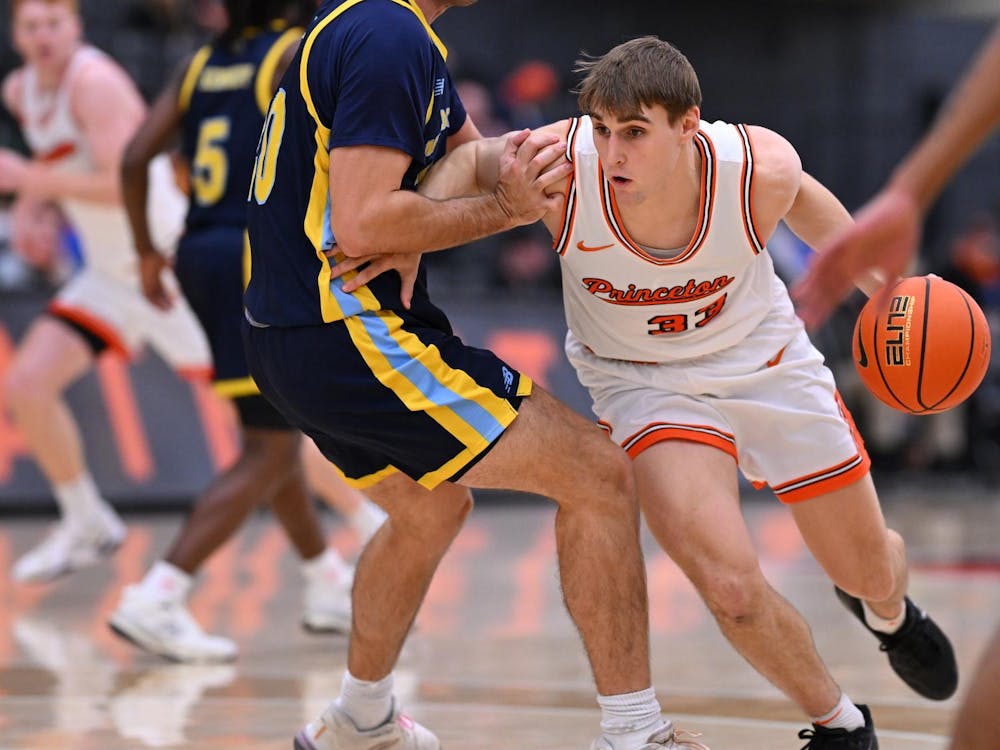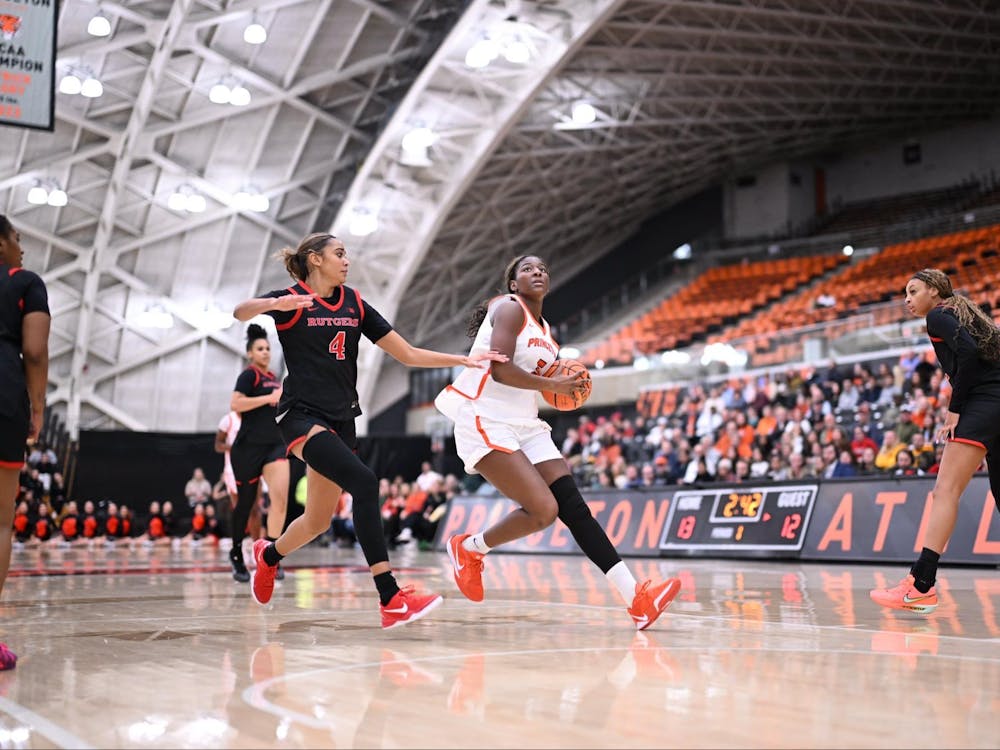Fencing has taken Maya Lawrence '02 on a long journey from anonymity to the cusp of Olympic glory. Her path from high school softball standout in New Jersey to fencing champion in Paris has never been conventional.
"I wanted to focus on softball in high school," Lawrence said. "A friend of mine got me to try fencing freshman year. I tried it for a while but did badly on a math test, so I put it off for a year."
It's a good thing she returned. Lawrence did well enough in high school academically and athletically to be recruited by Brown. She told former Tiger head coach Michel Sebastiani that she was going there for sure, but she never got on the Bear coach's list. After being admitted to Princeton regular decision, she joined the Tigers in the fall.
Starting as a walk-on at Princeton, Lawrence's epee career bloomed only after Sebastiani convinced her that she had the raw talent to make it in the sport. Sebastiani was right. Lawrence practiced hard and unexpected success followed, as she won a national title at the Junior Olympics in 1999 and earned a ninth-place finish in the epee competition at the 2002 NCAA Championships.
Today, Lawrence is in Paris, where she is training to qualify for a chance to represent the United States at the 2008 Olympics in Beijing. Sebastiani continues to support her as she trains across the pond. In fact, he's the reason she's there in the first place.
At Princeton, Sebastiani's French coaching style highlighted Lawrence's strengths and helped her lead the women's team to its first-ever International Fencing Association three-weapon championship.
"Each school has differences in training," Lawrence said. "Germans focus on weight lifting and strength, while the French focus more on multiple actions to get the touch."
When Lawrence decided she wanted to pursue fencing beyond Princeton, Paris was the obvious place to train, but the means to get there were not as clear. The United States Fencing Association offered money for tournaments, but no stipend. If she wanted to get to Paris, Lawrence would have to do it on her own.

The first step was finding a job.
"EU regulations make it hard to get residency unless you already have an established career," Lawrence explained.
Fortunately, Lawrence did have one advantage in the job market over her French competitors — she spoke English. She enrolled in a program with the U.S. embassy to teach English as a second language.
Lawrence found a position in November as a part-time "assistante d'anglais" at a Paris technical high school specializing in fine arts. The job doesn't pay very well, but it gets her by. More importantly, it keeps her in France.

Her training will become even more important as the year goes on. Qualifiers for the 2008 Olympics begin in just five weeks and continue until March of next year. Though Lawrence is fencing better than ever, the overall prospects of U.S. fencing look bleak.
"We're in a bad situation with women's epee since we have no national coach for epee," Lawrence said.
While most national fencing teams are state-sponsored, the U.S. team relies on donations. Because of this, U.S. fencing has to strategically allocate resources by focusing on some weapons and neglecting others, like epee.
Another change has hurt Lawrence's prospects as well. The Olympics added the saber as an event at the 2004 games, and in order to keep the medal count the same for fencing, the women's team epee medal had to be cut. As a result, the U.S. team can only bring two competitors for the individual epee competition to the games.
Lawrence did catch a break with a new organization called the U.S. Athletic Trust, founded by former Olympic shot putter August Wolf '83. Wolf's goal is to ease the difficulties of athletes like Lawrence trying to make the transition from college to full-time training.
"It's not a lot of money, but it's definitely helped out," Lawrence said.
Lawrence is optimistic about her chances. She is currently ranked second nationally in women's epee and has been performing well. In a sport full of older athletes, her longterm prospects are even better.
"Most top fencers don't peak until their early thirties," Lawrence said. "The reigning Olympic champion is 36 and everyone ranked in the top five is over 28."
Furthermore, while her top opponents have been training for decades, Lawrence is a relative newcomer.
"All of them have been fencing for a very long time," Lawrence said. "I remember looking at the French team's website, and all of them started between the ages of 5 and 7."
The competition may be stiff and the training hard, but for Lawrence it's well worth it.
"I'm definitely glad I did it," Lawrence said of pursuing her Olympic dream.







